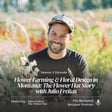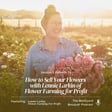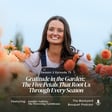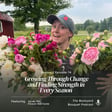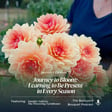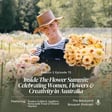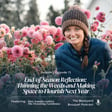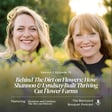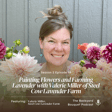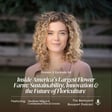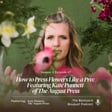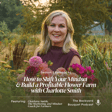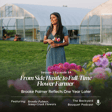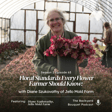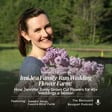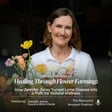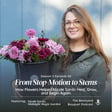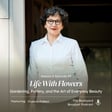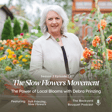
Ep.21: How Kamille Scellick Balances Motherhood and Dahlia Breeding: A Story of Love and Growth
Are you ready to be inspired by a heartfelt story of healing, motherhood, and the beauty of dahlias? Join us on the Backyard Bouquet Podcast this week as we welcome Kamille, a flower farmer and mother, who shares her journey of finding solace in flower farming after experiencing grief and loss.
Discover the therapeutic power of flowers and the importance of prioritizing family and relationships through Kamille's touching story. Hear about her passion for breeding dahlias and the value of mentorship and community within the dahlia world.
Explore Kamille's approach to nurturing her daughters, each with their unique personalities, and gain insights into balancing flower farming with motherhood. Find inspiration in Kamille's message of encouragement and support, emphasizing the power of affirmation and building meaningful relationships.
Join us on this episode as we delve into the intersection of flower farming, motherhood, and the beauty of nurturing relationships through Kamille's inspiring journey. Let the Backyard Bouquet Podcast be your guide to wisdom, joy, and the transformative power of flowers. Tune in now to let your backyard bloom with Kamille's heartfelt tale.
Show Notes: https://thefloweringfarmhouse.com/2024/05/15/ep-21-balancing-motherhood-and-dahlias-kamilles-flowers/
In This Episode You'll Hear About:
- 00:01:07 - Kamille's Background in Flower Farming
- 00:07:26 - Importance of Flowers in Feeding the Soul
- 00:09:25 - Nurturing Relationships with Daughters in the Garden
- 00:15:50 - Passion for Breeding Dahlias
- 00:20:34 - Building Relationships in the Dahlia Community
- 00:39:00 - Prioritizing Family and Flower Farming
- 00:46:18 - Balancing Motherhood and Flower Farming
- 00:47:06 - Avoiding Comparison and Fostering Encouragement
Learn more about Kamille’s Flowers:
- https://www.kamillesflowers.com/
- https://www.instagram.com/kamillesflowers/
- https://www.whatcomcountydahliasociety.com/
*********
JOIN THE DAHLIA PATCH
Monthly LIVE Trainings, Q&A Sessions, & Online Learning Community To Help You Grow And Enjoy Healthy & Abundant Dahlias This Year
https://thefloweringfarmhouse.mykajabi.com/the-dahlia-patch-membership-growing-dahlias
*********
***Rate, Review, & Follow The Backyard Bouquet***
If you enjoyed this episode, will you please consider leaving the podcast a review? Your review helps make the podcast more discoverable to others and allows me to continue creating more episodes. I'd love to know what you enjoyed most about the episode.
New episodes are coming every Tuesday to help keep your garden blooming!
Sign up for our newsletter: https://thefloweringfarmhouse.myflodesk.com/nlw4wua8s3
